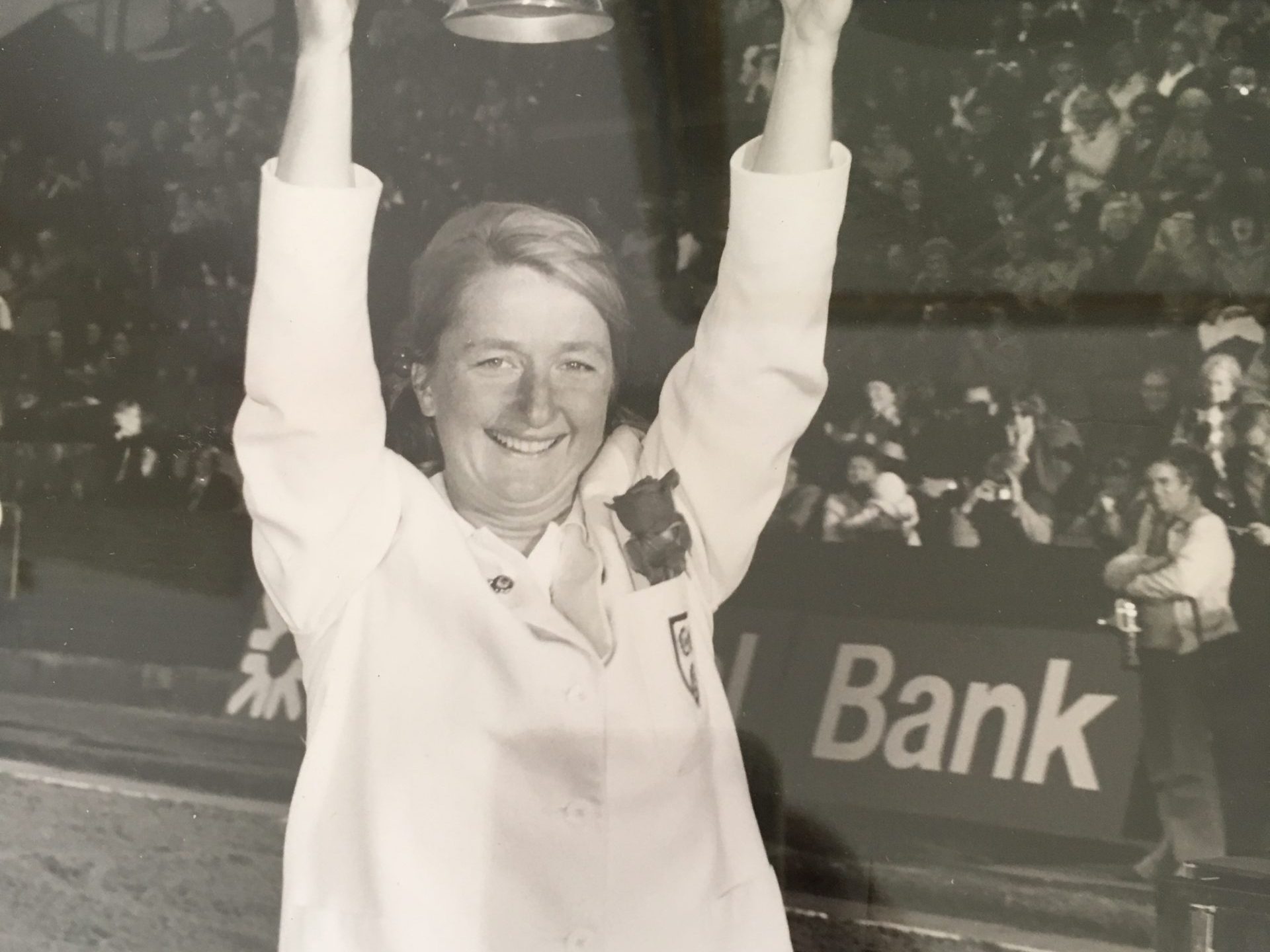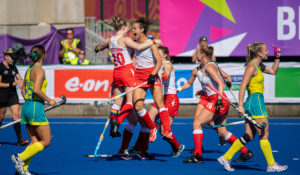
Making strides forward for women’s sport
Published

Anita captained the England Hockey Team 1974-76
Women in Sport co-founder and former England Hockey captain (1974-76), Anita White OBE gives her reaction to an incredible summer of women’s sport and explains why the momentum cannot stop now…
Sitting down to watch the final of the Women’s Euros, I was very nervous for the team. I didn’t expect it to be a good game given the nature of any final and of the way Germany plays in all sports. They are always firm, organised and stubborn because they don’t like to lose. I was absolutely delighted when England won!
The crowd on Sunday was so different from men’s football. It was great to see so many families and such a diverse crowd ethnically and age-wise and to see men, women and children cheering and suffering and celebrating together.
Everything was so joyous, not just the celebration of the team, but the atmosphere, the crowd, it showed what women’s team sport can be like. I am absolutely thrilled that it was front page and headline news. It is wonderful to see a women’s team being so celebrated by the general public. It is fantastic to have lived to see this, other friends didn’t live to see it, but I have and I’m really glad about that.
I also love that the Lionesses are all so articulate and honest, and that they have pointed to the legacy left by the people before them who battled for this as well as looking to the future and setting out their stall on school PE for example. They are amazing women.
I’ll be interested to see what effect this has on other women’s sport. Yes, there’ll be more interest in football but I do believe strongly that girls need access to a variety of sports. I want to pay tribute to all that’s been achieved in football to challenge and change the culture and to some great women leaders who have been in there leading this change like Baroness Sue Campbell. But I do hope it will encourage women to get more active in general and play all sorts of sport, not just football.
These celebrations certainly contrast with the attention paid to our win over Wales in the Hockey World Cup in 1975 at Meadowbank. We had a few thousand in the crowd and our success got almost no coverage. This lack of recognition was part of my motivation for teaming up with others to set up the charity Women in Sport in 1984.

Leading out the England Women’s Hockey team at the World Cup in 1975
Back in the 1950s, Women’s Hockey (which was then run separately to the men’s game and was bigger at the time) struck a deal with Wembley to use the venue for one Saturday every March. They played international friendlies against teams from as far afield as New Zealand. There’s a book called “The Magic of Wembley” available from the Hockey Museum about this era when teachers from all over England brought coaches and minibuses of girls to watch the hockey. The crowds reached a peak of 69,000 in 1976 and it certainly made the game more popular.
In the 1970s 60,000 girls would watch us at Wembley each year, in 1983 it was 55,000, by 1990 it was only 25,000 and in the final year we held the event which was 1991 it had fallen to 17,000 and the AEWHA decided it was no longer financially viable. PE teachers had stopped bringing as many girls, and there were many changes in the game. The grand annual hockey spectacle fizzled out. To be fair, the grass was too long so the pitch was not good for hockey and by this time most hockey was being played on AstroTurf, but they were glory days.
Young women I coached many years later told me they had been inspired by going to Wembley to watch us play hockey.
Germany was the first team I played hockey against at Wembley in 1971. Unlike the Lionesses, we drew with Germany, 2-2. There was no extra time or penalty shoot outs in those days – a draw was quite acceptable.
In 1976 I led the World Champion English team out onto the pitch at Wembley in front of a crowd of over 60,000 school girls and there was a fabulous atmosphere. It was one of my proudest moments.

England win the gold (credit: England Hockey)
Hockey is now having it’s moment in the spotlight once again. I was absolutely delighted with the superb performance of the England women’s team in the final of the Commonwealth Games to beat the mighty Australians and win the gold medal.
Partly due to the work of Women in Sport and its predecessors, women’s sport is now getting much more public recognition, and the Lionesses triumph was without doubt a landmark. In the early days of the charity now called Women in Sport, we were mostly lobbying and campaigning for gender equality in sport. Now the charity still does this but against a different backdrop. The principle of gender equality is widely accepted, it is the practice that lags behind. There’s still a long way to go, even after this wonderful celebratory week for women’s sport.
*Cover image photo credit: England Hockey
